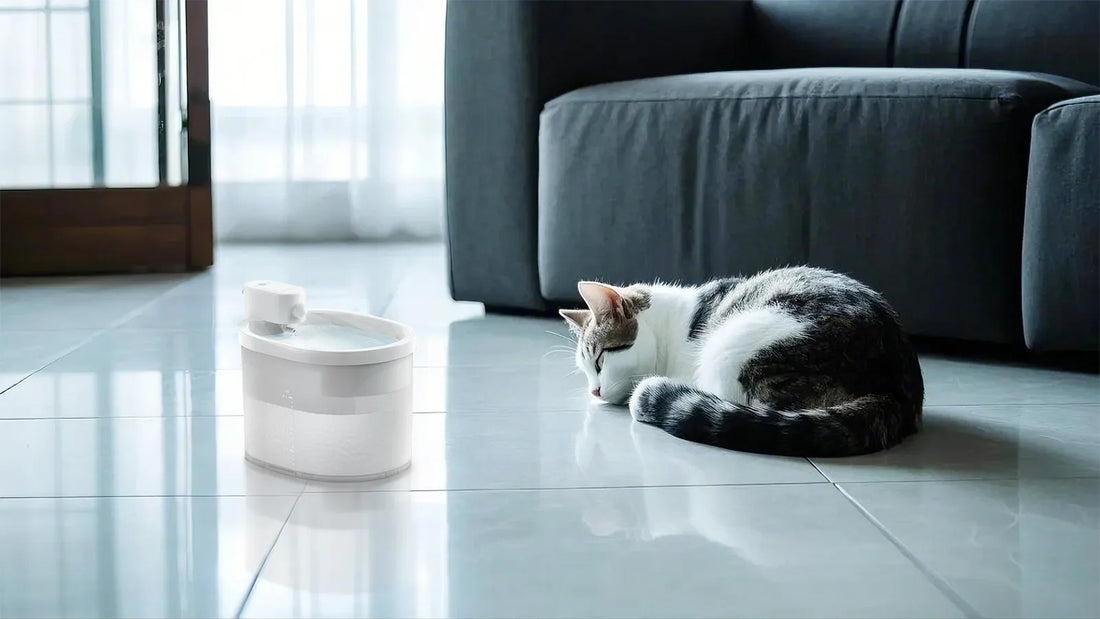It can be incredibly distressing to see your beloved dog lethargic, refusing to eat, but still drinking water. This behavior often signals an underlying issue that requires attention. Understanding the potential causes and knowing how to respond can make all the difference in your dog's health and well-being.
Common Causes of a Lethargic Dog Not Eating but Drinking Water
Several factors could explain why your dog is lethargic and not eating but still drinking water. These range from minor issues to more serious health conditions.
1. Stress or Anxiety
Dogs, like humans, can experience stress or anxiety, which may lead to a loss of appetite. Changes in their environment, such as moving to a new home or the arrival of a new pet, can trigger this behavior. While they may still drink water, their overall energy levels can drop significantly.
2. Dental Problems
Dental issues, such as tooth decay, gum disease, or oral injuries, can make eating painful for your dog. This discomfort may cause them to avoid food altogether while continuing to drink water, which is easier to consume.
3. Gastrointestinal Issues
Problems like gastritis, pancreatitis, or intestinal blockages can lead to nausea or pain, reducing your dog's appetite. Despite feeling unwell, they may still drink water to stay hydrated.
4. Infections or Illnesses
Viral or bacterial infections, as well as chronic illnesses like kidney disease or diabetes, can cause lethargy and a lack of appetite. Drinking water remains essential for their survival, even when they don't feel like eating.
5. Medication Side Effects
Certain medications can affect your dog's appetite and energy levels. If your dog has recently started a new treatment, this could be the cause of their behavior.
What to Do If Your Dog Is Lethargic and Not Eating
If your dog is lethargic and not eating but still drinking water, it's important to take action promptly. Here are some steps you can take:
1. Monitor Their Behavior
Keep a close eye on your dog's behavior, noting any additional symptoms like vomiting, diarrhea, or changes in urination. This information can be valuable for your veterinarian.
2. Check for Dental Issues
Inspect your dog's mouth for signs of dental problems, such as swollen gums, bad breath, or broken teeth. If you notice anything unusual, consult your vet.
3. Offer Appealing Food
Try offering your dog a different type of food, such as wet food or a bland diet like boiled chicken and rice. Sometimes, a change in texture or flavor can encourage them to eat.
4. Reduce Stress
If stress or anxiety is the suspected cause, try to identify and eliminate the source of their discomfort. Providing a calm and secure environment can help them feel more at ease.
5. Consult a Veterinarian
If your dog's condition doesn't improve within 24-48 hours, or if they exhibit additional symptoms, seek professional help. A veterinarian can perform diagnostic tests to determine the underlying cause and recommend appropriate treatment.
Preventing Future Episodes
Prevention is always better than cure. Here are some tips to help ensure your dog stays healthy and avoids future episodes of lethargy and loss of appetite:
1. Maintain a Balanced Diet
Feed your dog a balanced diet that meets their nutritional needs. Avoid sudden changes in their food, as this can cause digestive issues.
2. Regular Dental Care
Brush your dog's teeth regularly and schedule annual dental check-ups to prevent oral health problems.
3. Provide Mental Stimulation
Keep your dog mentally stimulated with toys, puzzles, and regular exercise. This can help reduce stress and anxiety.
4. Stay Up-to-Date on Vaccinations
Ensure your dog is up-to-date on vaccinations to protect them from common infections and illnesses.
5. Regular Vet Visits
Schedule regular check-ups with your veterinarian to monitor your dog's overall health and catch any potential issues early.
Seeing your dog lethargic and not eating but still drinking water can be alarming, but with the right knowledge and actions, you can help them recover. Always prioritize their health and well-being, and don't hesitate to seek professional advice when needed.

![[🎃Halloween Sale]UAHPET Stainless Steel Self-Cleaning Cat Litter Box](http://www.uahpet.com/cdn/shop/files/1-cat-litter-box.jpg?v=1759128420&width=1600)












